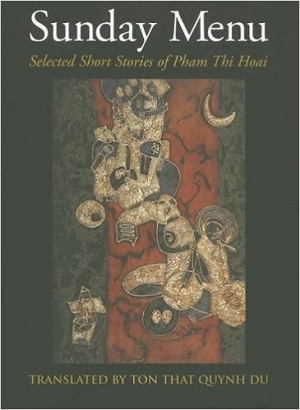Patrick Allington
Georgina Arnott reviews 'Famous Reporter no. 33' edited by Ralph Wessman et al. and 'Etchings no. 1' edited by Sabine Hopfer, Christopher Lappas and Patrick Allington
Here we have one brand new literary journal, Etchings, and one which, by comparison, is practically geriatric: Famous Reporter. There is now a proliferation of literary journals, and SPUNC (Small Press Underground Networking Community) has emerged to advance their cause. We know that mainstream publishing is producing less diverse material, and that it is increasingly not Australian. The vast majority of publishing in Australia, as Michael Wilding has highlighted, is now done by local branches of big transnational corporations. Malcolm Knox has revealed the ‘governing management principles’ of such organisations. These include ‘segmentation and internal competition’: whereas in the past a publisher subsidised ‘book sections’, now a publisher will say ‘each of these books is a discrete unit and is at war with each other unit, and if the CSIRO Diet Book does well, we will reward the diet books section with the money to repeat that success. And if the poets continue to languish, we’ll have no more poetry.’ Poetry, of course, was effectively given the flick by mainstream publishers Penguin and OUP in the 1990s. As Mark Davis says, publishers are now akin to gamblers who ‘back winners’. This may always have been true, but now they’re putting more money on the favourites and none on the roughies. In this environment, literary journals that publish poetry are crucial to maintaining a diverse local literary culture.
... (read more)This digressive collection of essays, extracts, cartoons and poems is unified by an interest in colonial and post-colonial responses to London. It stems from a 2003 conference, ‘Writing London’, organised by Flinders University’s Centre for Research in the New Literatures in English (CRNLE). Part 1 focuses on the Malaysian writer Lee Kok Liang (1927–92), in particular his posthumously published and wry first novel, London Does Not Belong To Me (2003), from which this book takes its name: ‘London was full of rooms. I went from one to the other. Slowly I adjusted myself and lived the life of the troglodyte, learning the tribal customs of feints and apologies.’ Part 2 comprises examples of, and critical and scholarly essays relating to, literary, journalistic, artistic and cinematic responses to London (mostly by Australians).
... (read more)Patrick Allington reviews 'Unintelligent Design' by Robyn Williams
Douglas Adams’s The Hitchhiker’s Guide to the Galaxy (1979) suggests that the Babel fish, which, when inserted into the ear, offers instant translations of any alien language, cannot have evolved by mere chance. Similarly, proponents of Intelligent Design (ID) argue that, as Robyn Williams summarises, ‘there are parts of the natural world so complex and engineered with such precision that only a very smart intelligence, not blundering selection, could account for them’.
... (read more)Patrick Allington reviews ‘A Short History of Cambodia: From empire to survival’ by John Tully
Cambodia is best known for the Angkor temple complex, and for Pol Pot. This primer incorporates the famous monuments and the Killing Fields into 2000 years of history, from pre-Angkorean Funan to the present. As John Tully suggests, it suits ‘tourists, students and general readers’. Writing a ‘short history’ presents specific challenges: the author must balance a narrative that tells a comprehensible story with the reality that history is messy and contested. While Tully cannot avoid discussing eras, issues and personalities with haste, the chapter on the Angkorean civilisation is especially crammed. In part, this reflects his obligation to acknowledge scholarly disagreement, but a more detailed and leisurely account of the Angkor era would have been welcome. In contrast, the chapter on the French protectorate (1863–1953) is assured and authoritative, which is unsurprising since Tully previously wrote the majestic France on the Mekong: A History of the Protectorate in Cambodia, 1863–1953 (2002).
... (read more)Patrick Allington reviews 'Sunday Menu: Selected Short Stories of Pham Thi Hoai' by Pham Thi Hoai
Pham Thi Hoai, now a resident of Berlin, writes about her Vietnamese homeland with a sardonic yet affectionate eye. While not overtly political, these short stories explore every-day life in a restricted society that is opening slowly and selectively. Sunday Menu is full of observations that, without preaching, flag the complexities of modern, modernising Vietnam. For example, regarding a group of locals touting for tourist dollars on a beach, the narrator in ‘The Toll of the Sea’ writes: ‘My heart fell heavy as I saw in each of them a former teacher now looking for a better income.’ Such asides represent a challenging form of dissent. As translator Ton That Quynh Du writes in his helpfully contextual afterword,: ‘her detractors have charged her with holding an “excessively pessimistic view” of Vietnam, of abusing the “sacred mission of a writer” and even of “salacious writing”.’
... (read more)Patrick Allington reviews 'Notebooks: 1970–2003' by Murray Bail
These writer’s scribblings, handsomely reproduced, cover two distinct periods in Murray Bail’s life: London from 1970 to 1974; and Sydney from 1988 to 2003. The notebooks from the London period, which represent roughly two-thirds of this book, were previously published as Longhand: A Writer’s Notebook (1989). While readers may find some interest in comparing the formative and the mature writer, the older Bail’s reflections on ageing and death represent the most consistently penetrating writing in Notebooks.
... (read more)




